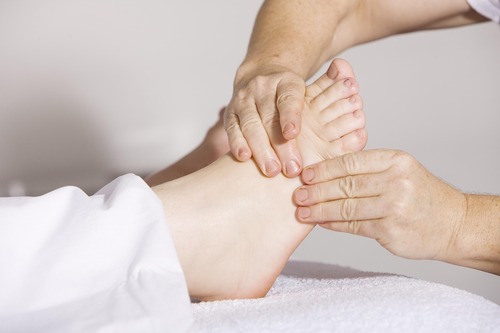Orthotics play a crucial part in addressing plantar fasciitis, a common cause of foot discomfort and heel pain. This condition often develops due to strain on the plantar fascia, a ligament connecting the heel to the toes. Proper support through these can alleviate pain and improve mobility. By redistributing weight and reducing micro-tears in the fascia, it directly targets the inflammation causing discomfort.
Understanding Plantar Fasciitis and Foot Pain
Plantar fasciitis is an extremely common Foot & Ankle issue that arises from overuse or strain on the ligament beneath the foot. Common triggers include prolonged standing, improper footwear, and high-impact activities. Symptoms range from sharp heel pain to stiffness, often worsening in the morning or after rest. Biomechanical issues, such as overpronation or flat feet, exacerbate the stress on the plantar fascia, increasing the risk of chronic pain.
Why Foot Support Matters in Plantar Fasciitis
Supportive footwear and insoles can significantly reduce the strain on the affected ligament. Orthotics are designed to provide targeted support, distributing pressure evenly across the foot. This reduces stress on the inflamed area, promoting healing. Properly designed ones also correct gait abnormalities, which can prevent further injury to the fascia and surrounding tissues.
Relieving Heel Pain with Orthotics
Orthotics can cushion the heel and provide arch support, addressing the root cause of plantar fasciitis. These inserts improve alignment, reducing tension in the plantar fascia. Over time, this helps minimize inflammation and promotes a return to normal activities. Advanced versions often include shock-absorbing materials to mitigate the impact on the heel during walking or running, accelerating recovery.
Custom vs. Prefabricated Orthotics
Choosing the right orthotics depends on individual needs. Prefabricated options are readily available and cost-effective, catering to mild cases. Custom orthotics, on the other hand, are tailored for specific foot shapes and conditions. They provide a more precise fit and can address severe symptoms. Customization may include features like varying arch heights or material densities to accommodate unique biomechanical requirements.
Combining it with Other Treatments
While orthotics are effective, they work best when integrated with other methods. Stretching exercises can reduce ligament tightness, while physical therapy strengthens surrounding muscles. Ice packs and anti-inflammatory medications may help control pain during acute phases. Combining these approaches ensures comprehensive recovery. Incorporating night splints can further reduce morning stiffness by keeping the plantar fascia elongated overnight.
Improve the Foot Function
Beyond pain relief, orthotics improve overall foot function. Proper support enhances weight distribution, reducing strain on joints and ligaments. This improvement benefits not just the feet but also the knees and lower back, which can be affected by poor alignment. Custom ones often enhance proprioception, allowing individuals to achieve better balance and coordination during physical activities.
When to Consider Them for Relief
Orthotics should be considered when conservative measures fail to provide relief. Persistent pain, difficulty walking, or recurring symptoms indicate a need for additional support. Early intervention can prevent the progression of symptoms and enhance quality of life. Individuals with professions requiring prolonged standing may benefit significantly from orthotics, as they can mitigate the cumulative stress on the feet.
How Podiatrists Can Assist with Orthotic Solutions
Podiatrists play a key role in identifying the right orthotic solutions for managing plantar fasciitis. With their expertise in foot and ankle biomechanics, they can assess the severity of the condition and recommend tailored orthotics to address specific issues. Podiatrists also provide guidance on incorporating them into daily routines and suggest complementary treatments like stretching exercises or physical therapy for enhanced recovery.
Orthotics serve as a valuable tool in managing plantar fasciitis, an extremely common Foot & Ankle issue. Their role extends beyond treatment, contributing to improved foot function and overall mobility. By combining these with complementary therapies by professionals, individuals can achieve faster recovery and maintain long-term health.



